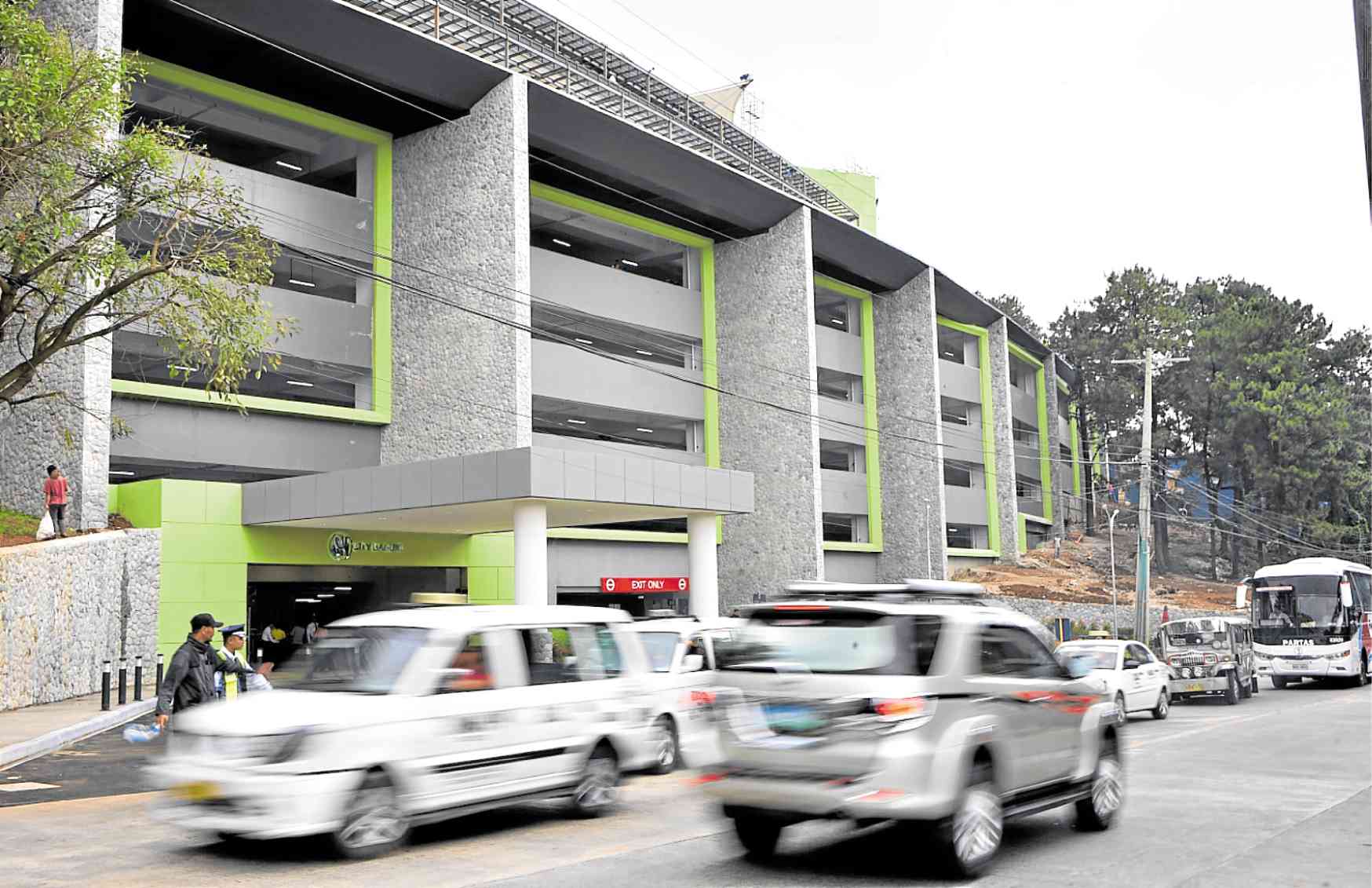P10B needed to restore Baguio as ‘mountain paradise’

PARKING BUILDING Part of Baguio’s rehabilitation plans is the construction of parking buildings to reduce the number of vehicles clogging up traffic in the city. On Wednesday, a shopping mall chain opened a five-level parking building to accommodate about 700 vehicles.—EV ESPIRITU
BAGUIO CITY, Philippines — Restoring Baguio City’s reputation as a “mountain paradise” will require at least P10 billion to modernize and expand public services like the sewage system, build new forest parks, and introduce an automated control center that will manage traffic and disaster response.
The projects are part of a masterplan to be funded by next year’s city budget and by grants and loans to rehabilitate the city, Mayor Benjamin Magalong said in his state of the city address this week.
A proposed one-year moratorium on building constructions and tree cutting has been “approved in principle” by Malacañang, to allow the city government to grow pine tree saplings and rebuild the city’s forests.
From 2010 to 2015, Baguio’s built-up areas increased from 2,990 hectares (52 percent) to 3,561 ha (61.9 percent), reducing open forest cover in five years, said Ralph Pablo, director of the Department of Environment and Natural Resources in Cordillera.
But work must start on fixing the sewers, removing settlements along waterways and banning backyard piggeries, Magalong said, adding that Baguio is contributing to pollution along the Bued and Balili rivers that affects downstream communities of Benguet and La Union provinces.
Article continues after this advertisementThe city failed to get approval of a P350-million fund for improving the city sewers and modernizing the sewage treatment plant but would partner in a joint venture deal with wastewater management firms, Magalong said.
Article continues after this advertisementMonorail system
The modern sewer lines need to be in place before the city government proceeds to build a P6-billion public market, which will be served by monorails and elevated walkways and roads.
A P10-billion credit facility offered by the Development Bank of the Philippines may allow the city to start work on the market between January and March next year.
Because Baguio will require “huge amounts of energy for many big city projects in the pipeline,” the city government is also keen on adopting a Japanese waste-to-energy program that would generate electricity to power some of its ambitious projects, including a monorail transit system, Magalong said.
During a recent executive-legislative session, city administrator Bonifacio de la Peña said technical experts were convinced that the methane gas power system designed by Japanese firm, Toyo Energy Solutions Ltd., was suited for Baguio’s needs.
Biodegradable
Introduced in July by Toyo Energy president, Yoshimitsu Okada, the system would be fueled by Baguio garbage “which would not make the zero-waste movement happy,” De la Peña said.
About 40 percent of 168 tons of waste generated daily by Baguio households and businesses are biodegradable, based on a waste analysis and characterization study.
The plant can also get waste from Baguio’s neighboring towns and become a waste management project for an economic cooperative of towns called BLISTT (Baguio and the Benguet towns of La Trinidad, Itogon, Sablan, Tuba and Tublay), Magalong said.
He said the city submitted its “expression of interest” to pilot a “low-carbon urban transport system” to be undertaken here by the Department of Transportation.
He said Transportation Secretary Arthur Tugade had agreed to put up nonpollutive mass transportation such as monorails, cable cars and modern jeepneys.
The city government plans to put up four parking buildings all over Baguio and is reviewing proposals for parking and jeepney terminals at Burnham Park. —Vincent Cabreza